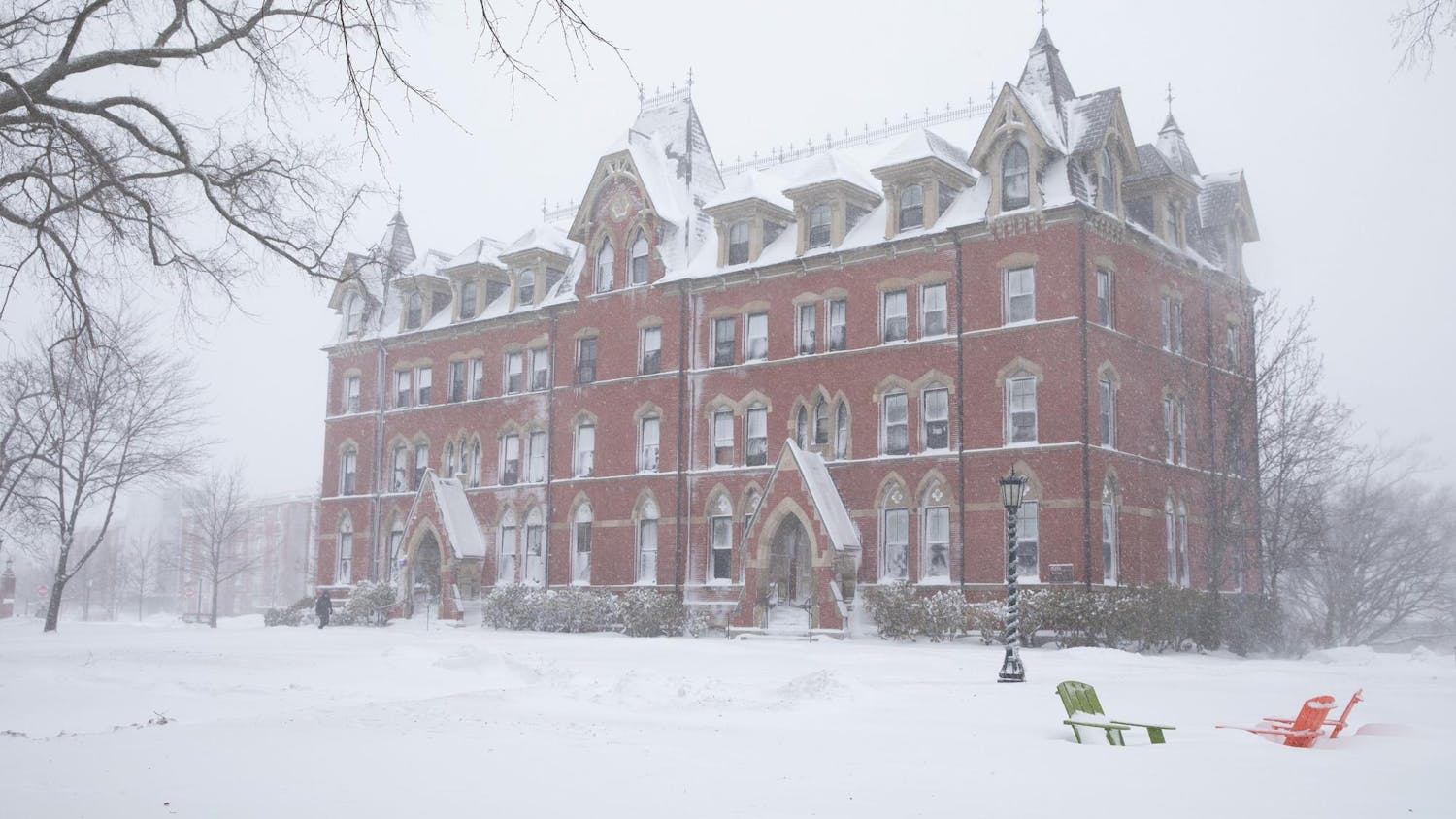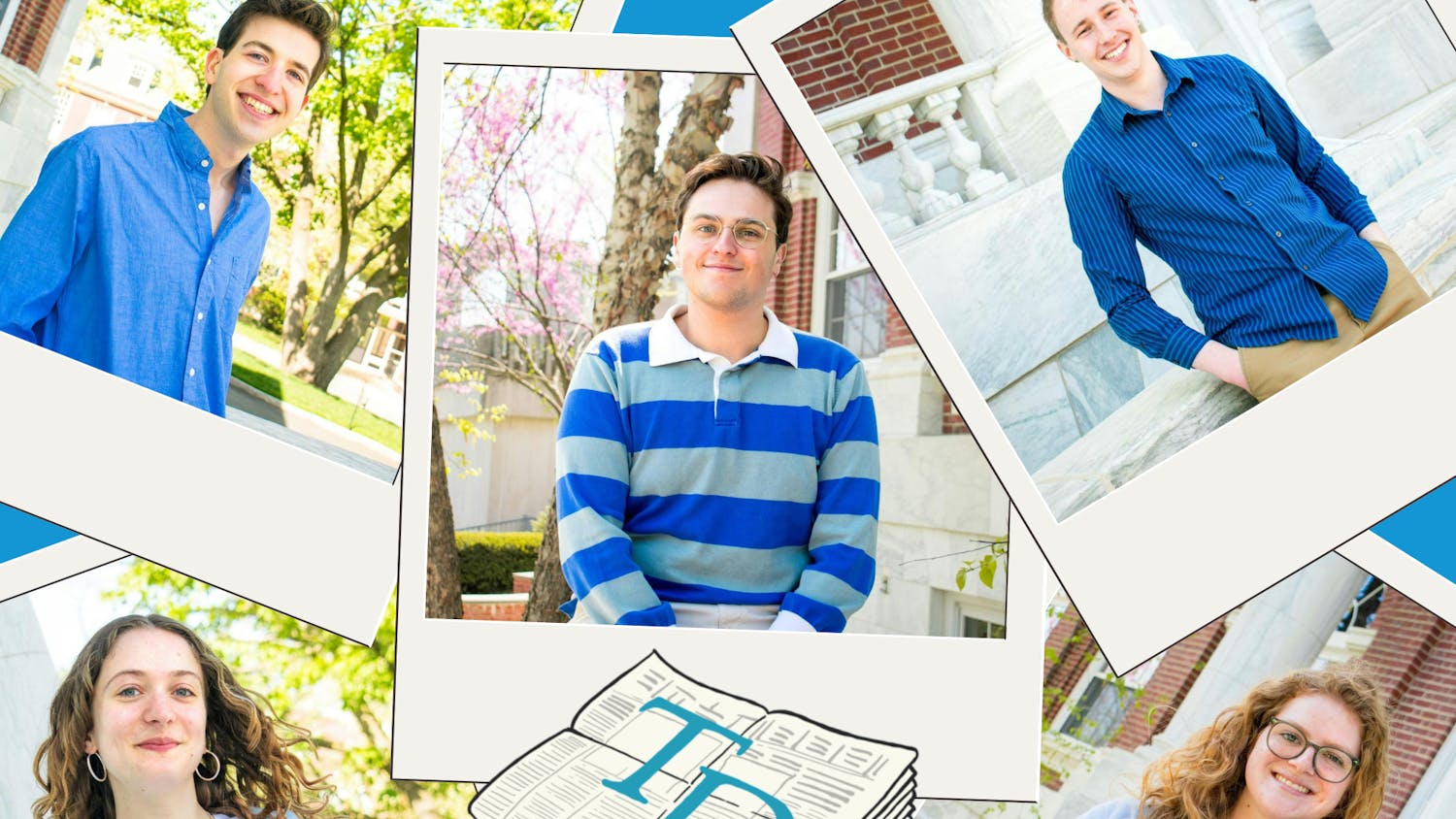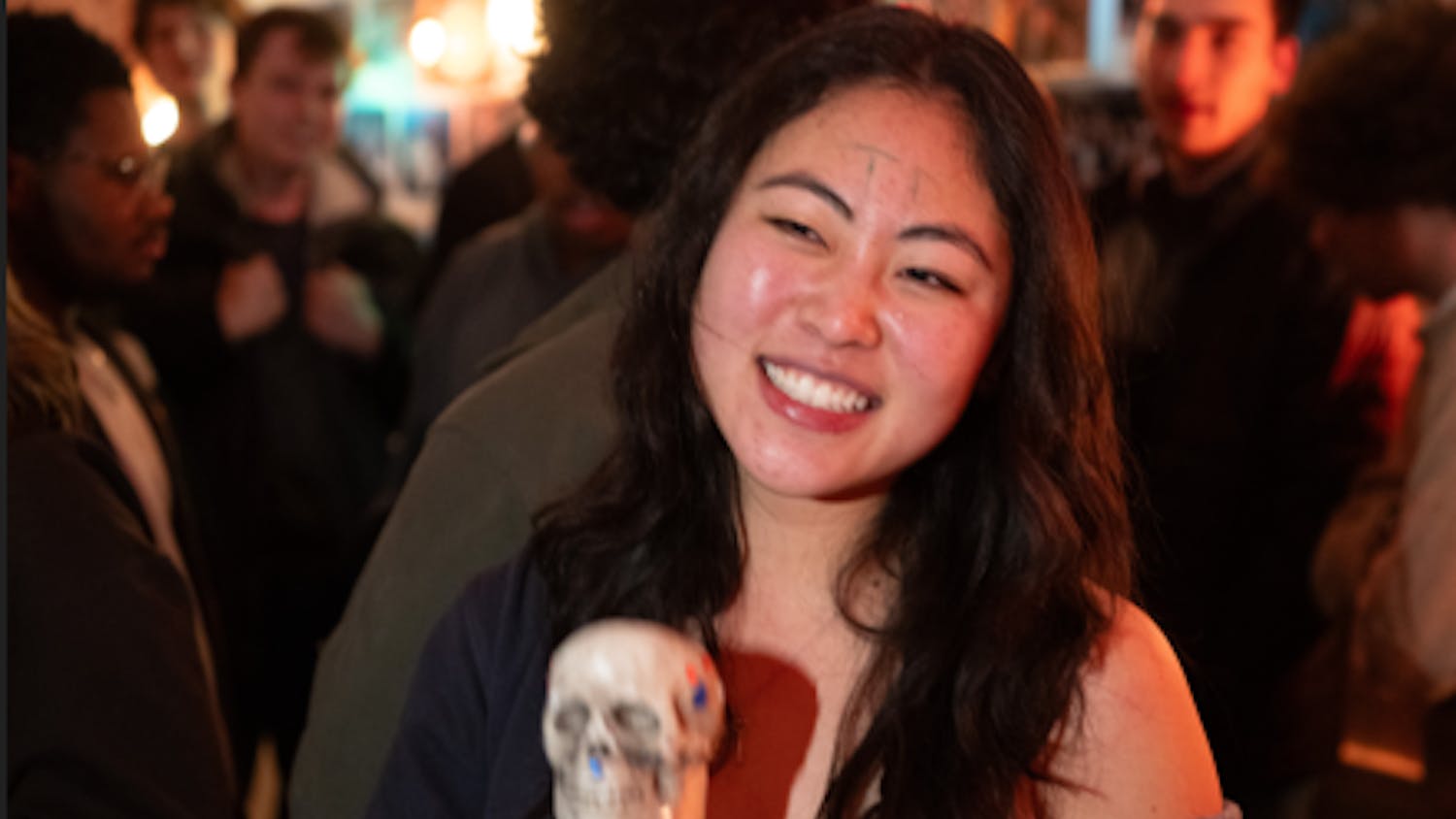Chemistry ProfessorElena Rybak-Akimova passed away from cancer March 11 at the age of 56. Rybak-Akimova’s research interests were small-molecule binding and activation. Above the molecular level, she shared her passion for chemistry with students, colleagues, friends and family.
Rybak-Akimova demonstrated an aptitude for chemistry even in her youth in Ukraine. After graduating high school, she participated in the 10th International Chemistry Olympiad, winning first prize and the gold medal.
Akimova's husband, Alex Kolchinski, said he met her while she was an undergraduate getting a combined B.S./M.S from Shevchenko University. The pair soon became a couple after taking a German language course together.
“She had a very strong personality,” Kolchinski said. “She worked for most of her professional life with iron as a chemical element, so she was sometimes called the ‘Iron Lady.’”
Much of Rybak-Akimova’s work dealt with iron macrocyclic complexes, but her interest in iron did not limit her curiosity for other areas of chemistry. She also worked with other elements and focused on chemical kinetics.
Several years after Rybak-Akimova earned her Ph.D. in inorganic chemistry from the Institute of Physical Chemistry at the Academy of Sciences of Ukraine, she and Kolchinski immigrated to the United States in 1992. Until 1997, she conducted postdoctoral research in Daryle Busch's group at the University of Kansas.
Becky Roesner, professor and chair of the chemistry department atIllinois Wesleyan University, was a colleague of Rybak-Akimova’s while in Busch’s research group.
“The breadth and depth of Elena's understanding made her a sought after collaborator and source of scientific advice,” Roesner told the Daily in an email. “When Elena engaged intellectually with students … she never focused on their limitations, but rather treated them as though they already were the scientists she believed they could become.”
After her postdoc, Rybak-Akimova joined the Tufts faculty, being quickly promoted from assistant to tenured professor. Through the Rybak-Akimova Group, Rybak-Akimova served as a mentor and advisor to many who have gone on to pursue chemistry at an advanced level, all the while finding time to publish hundreds of articles in peer-reviewed journals and win three faculty research awards.
Ivan Korendovych, associate professor of chemistry at Syracuse University, said he joined Rybak-Akimova’s lab at Tufts in 2001 as a Ph.D. student. Over the years, Rybak-Akimova also became Korendovych’s friend and colleague.
"She was very meticulous in her lectures but at the same time she tried to make them as much fun as possible," Korendovych told the Daily in an email.
Assistant Professor of Chemistry at Syracuse University Olga Makhlynets remembers when she first met Rybak-Akimova in Kyiv, Ukraine in 2004 while finishing her M.Sc. at the National Taras Shevchenko University of Kyiv, Rybak-Akimova’s alma mater. The next year, Makhlynets started her Ph.D. at Tufts and joined Rybak-Akimova’s research group.
“This meeting opened new opportunities and directions in my life and I often think about how fortunate I was to be introduced to Elena that day,” Makhlynets told the Daily in an email. “Being an international student, I was overwhelmed by the different culture and educational system. It meant a lot to me to have a research advisor who could not only inspire me as a scientist, but also help me adapt to the new environment.”
Senior Adam Zoll, a chemistry major, said he first met Rybak-Akimova in spring 2015 to discuss the possibility of working in her lab. By the end of his sophomore year, Zoll came to know Rybak-Akimova in three capacities: professor, academic advisor and principal investigator (PI) for a research grant.
“Professor Rybak-Akimova served as a mentor and source of encouragement and motivation for me,” Zoll told the Daily in an email. “[Her] enthusiasm for chemistry was contagious … [She] was always on my side, in and out of the classroom. Her belief in my ability to grow as a scientist continues to encourage me toward my goals today.”
Rybak-Akimova’s passion for science and her students are undoubtedly her legacy. Korendovych recalled her often saying she would never think of retirement: “Why would anyone retire from so many new discoveries yet to be made?”
Still, according to her daughter, Anna Kolchinski, Rybak-Akimova's hobbies were not limited to the field of chemistry.
“Of course her chemistry is important, but her as a person is also important,” Kolchinski, a first-year, said. “She loved to ski, she loved croissants and having brunch a lot, and she loved to go on walks in the woods every weekend.”
While at first she thought it felt strange to go to college where Rybak-Akimova taught, Kolchinski said she came to enjoy the proximity to her mother at Tufts.
“I liked being able to go to her office after classes. I would stop by all of the time and visit her for advice or just to talk,” Kolchinski said. “She was definitely more logical than compassionate, but if you really needed her she understood and would be there for you.”
Elena Rybak-Akimova, chemistry professor of 18 years, dies at 56

Elena Rybak-Akimova is pictured in 2005.





